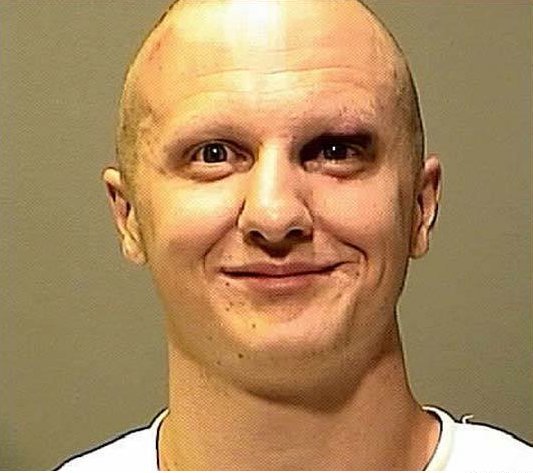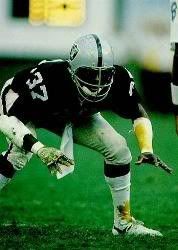Angel wrote:Behshad wrote:I knew you would get this off track to the whole palin shooting killing hunting thread.
I never said it was right or wrong to kill animals or people for that matter ! Some people need to be shot ( yep youre one of them)..... I made a very clear and simple statement that GUNS are made to kill as opposed to CARS. get it, got it , good !
What I get is that you are as dense as they come if you can't understand that mentally unstable people that wish to cause harm and/or do mass destruction will find a way to do so with or without guns.
The charts you put up are really cute, but show me the evidence that it is actually gun control regulations that makes the difference and not some other variable.
Why are you even in this debate if you dont know the facts about Europe and EU gun controls and tight laws?
Here's just a few countries rules and regulations.
European Union
The 1991 Council Directive 91/477/EEC started the process of creating a new common legal system for gun owners in the EU, and introduced the European Firearms Pass for owners carrying firearms from one member state to another. In late 2007 the European Parliament and Council adopted a legislative report to tighten gun control laws and establish an extensive firearms database.[20] Passed with overwhelming backing, the tough new gun control rules were "hoped to prevent Europe from becoming a gun-friendly culture like the United States," in the words of the International Herald Tribune.[21] Certain countries such as the United Kingdom are unaffected as they maintain more stringent gun control laws than those effectively set as a minimum by the European Union.
Germany
Gun ownership in Germany is currently regulated by Federal Weapons Act (German: Waffengesetz), 1972; it extends previous gun legislation.
In 1945 the Allies commanded full disarmament of the country, private ownership of firearms was not allowed until after 1956 when restrictions effectively returned to 1928 policy. In 1972 the Federal Weapons Act revised much of the regulations.
Under this act Germany maintains a two-tier policy to firearm ownership. A firearms ownership license allows for the purchasing of weapons by those over the age of 18 who meet various competency/trustworthiness guidelines. Convicted felons, those with a mental disability or those deemed unreliable are denied licenses. The second tier is a firearms carry permit which allows concealed or open carry in public. The permits are usually only issued to individuals with a particular need; such as hunters, law-enforcement, etc. The laws apply to any weapons with a fire energy exceeding 7.5 Joule.
Sweden
To start with, you have to be 18 yrs or older to qualify in to getting a gun.
Second: You have to have been "clean" for atleast 5 years. If you have a license and get arrested, even down to beeing to drunk so the police take you in and place you in custody over the night, you could lose you`re license and they will take you`re gun. No compensation given for the weapons they take.
Third: You have to be a member in a shooting club and follow their rules. That includes taking a newbie course. That will cost you about 250$. You have to pass the shooting test and the theorethical test in order to get passed. Once you have passed you get a green card. Then you have to have been a member for 6 months and have passed another, more difficult shooting test (called "gold series") in order to be able to buy youre first gun. Oh, i almost forgot, you have to have done 4 competitions in that weapons class to be able to buy the gun. But since you have been a member no longer than 6 months, you can not buy anything else that a .22 pistol or revolver... This can vary between diffrent clubs though, i think. Anyways. After a year you can buy any gun you want that is legal in Sweden, but only if you have participated in 4 or more competitions for that weapons class.
Norway
To own a gun in Norway, one must document a use for the gun. By far, the most common grounds for civilian ownership are hunting and sports shooting, in that order. Other needs can include special guard duties or self defense, but the first is rare and the second is practically never accepted as a reason for gun ownership.
There are special rules for collectors of guns. They are exempt from many parts of the regulation, but, in turn, they must meet even more narrow qualifications. Collectors may purchase, but not fire without permission, all kinds of guns in their respective areas of interest, which they have defined in advance.
Ownership is regulated in paragraph 7,[1] and responsibility for issuing a gun ownership license is given to the police authority in the applicant's district.
Rifle and shotgun ownership permission can be given to "sober and responsible" persons 18 years or older. The applicant for the permission must document a need for the weapon. Two exceptions exist to this age qualification. Persons under the age of 18, but over 16 may apply for rifle or shotgun ownership license with the consent of parents or guardian. For handguns, the lowest ownership age is 21 with no exceptions allowed. For inherited weapons, it is up to the local police chief to make a decision based on the individual facts of the case.
An applicant must have a clean police record in order to obtain an ownership license.
For hunting
To obtain a hunting license, the applicant must complete a 30 hour, 9 session course and pass a written multiple choice exam. The course includes firearm theory, firearm training, wildlife theory, and environmental protection training.
Once the exam is passed, the applicant may enroll in the hunter registry and receive a hunting license. The membership must be renewed each year, through license payment. The hunting license is brought to the police station, where the applicant fills out an application for obtaining the proper firearm for his or her hunt. After evaluation, part of the application is sent back to the applicant if it was approved. Upon approval, the applicant can take the returned form to the store and purchase the firearm listed in the application.
For sports shooters
The qualification process for sporting is theoretically easier, but requires more time and practice. The applicant must enroll in a firearm safety course, lasting at least 9 hours. The course includes a written test, but is shorter than the hunting exam, as it only deals with firearm safety. Two thirds of the course is completed on the shooting range as practice. The passing of the test results in acceptance to the approved gun club, and a license for competition. However, while the hunters can obtain their firearm almost at once, sports shooters must prove their intentions to compete by actively training or competing in the gun club. This means regular attendance (at least 15 times) at gun club training over the course of six months. The applicant must use firearms owned by the club or borrowed at the range for this period. After six months, the applicant may apply for weapon ownership. The start license and a written recommendation from the gun club president are brought to the police station, and the competition class is filled out on the application. If approved, it will be returned to the applicant as with the hunter license.
In both cases, if the application is rejected, the applicant is allowed an explanation of the reason, and an appeal.
___________________________________________________________________________________________
Thats just a few of rules and regulations. What would be So wrong with us having STRICT laws and regulations to even BUY a gun. Take away the guns from Walmarts and Kmarts and invest in a massive pre-purchase-qualification! You'll be surprised how it will lower the rate of mass-shootings!










